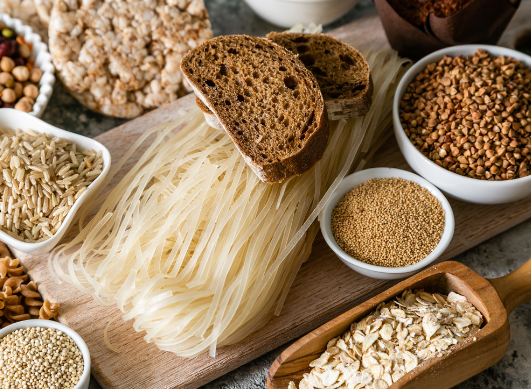- Home
- Share
- Forum
- General forums
- News from the media
- Pear-shaped women less likely to develop diabetes, new research claims
Pear-shaped women less likely to develop diabetes, new research claims
- 15 views
- 1 support
- 2 comments
All comments

Unregistered member
We all have our natural body type , and by right nourishment , we can be healthy , be it a pear , apple or banana shape .
The key is the right balance of carbohydrates , protein , fats , ( macro nutriments ) along with vitamins and minerals (micro nutrients )
As everyone is different , these factors need to be appraised by the individual .
None the less . It's balance that counts .
ian59

Unregistered member
Interesting article @GildaT - now when the GP starts on about my weight, I can say I am protecting myself from Diabetes :)
Give your opinion
Survey
Articles to discover...

14/03/2025 | Nutrition
Carbohydrates: Friend or foe? Everything you need to know to make the right choices!
Subscribe
You wish to be notified of new comments
Your subscription has been taken into account







Gilda
Community managerGood advisor
Gilda
Community manager
Last activity on 03/02/2023 at 15:26
Joined in 2015
710 comments posted | 68 in the News from the media group
Rewards
Good Advisor
Contributor
Messenger
Committed
Explorer
Evaluator
Women with a “pear-shaped” body are less likely to develop diabetes , according to new research.
A pear shape refers to a woman with larger hips and previous studies have shown that women with larger “fat-carrying” hips are “significantly less likely” to develop diabetes than women with smaller hips.
And it is all thanks to a maternally-inherited genetic variant, located near the KLF14 gene, which causes fat-storing cells to function differently and ultimately affects women’s hip circumference.
The study shows that women with larger hips predominantly have this gene variant.
Researchers have also discovered that a person’s expression of KLF14 and the resulting effects on fat tissue are determined by the version of the gene inherited from his or her mother.
To keep reading this article click here: Article
What do you think? Remember that sharing can help others to cope and prevent :)